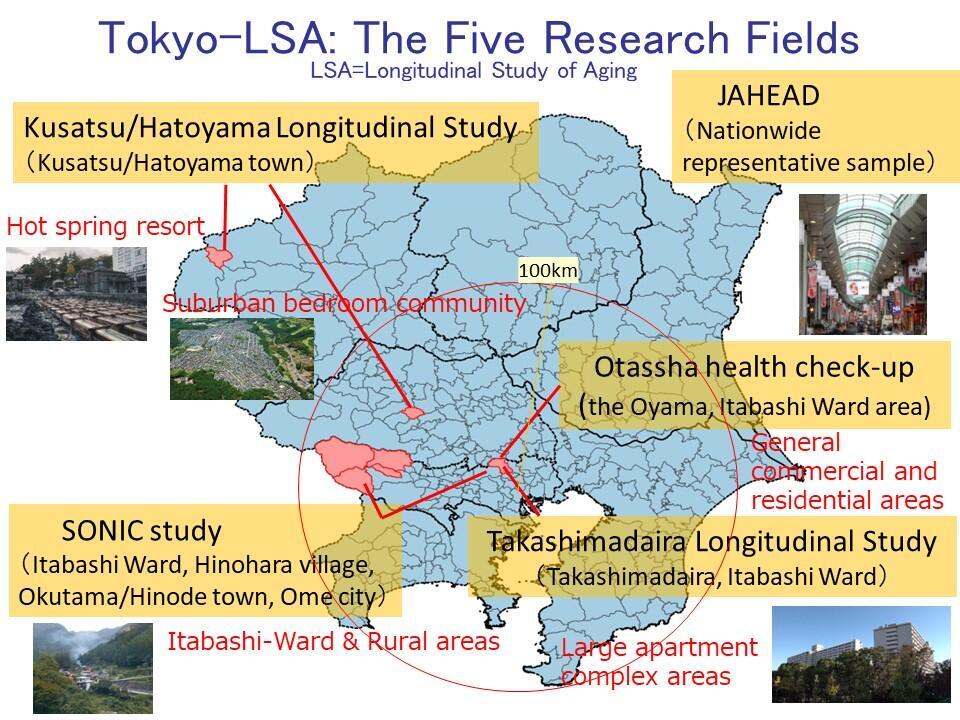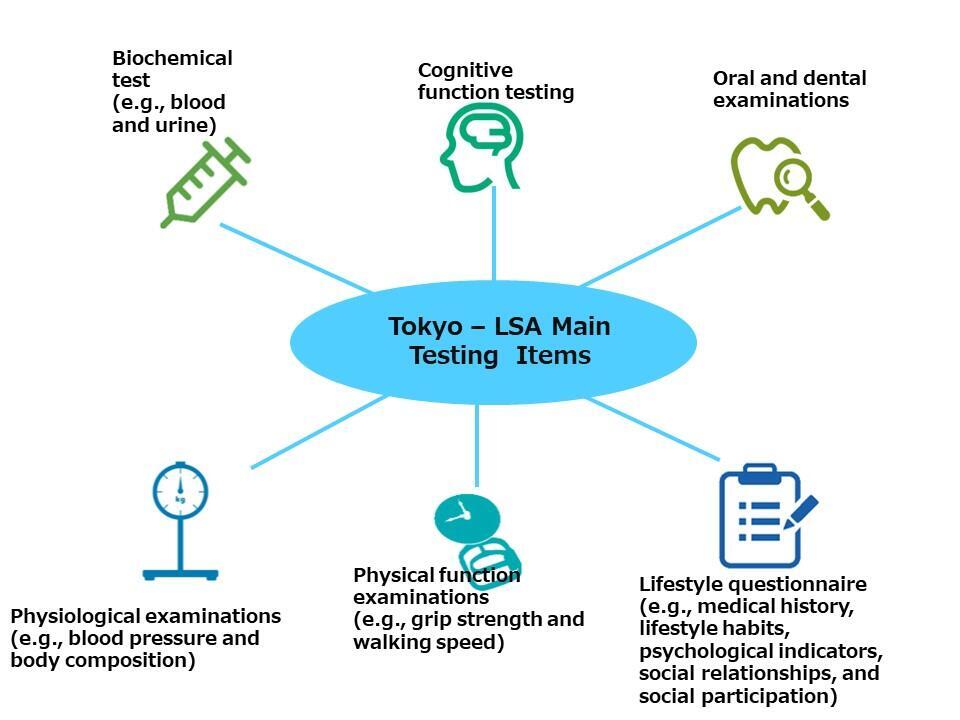To accurately capture changes in older adults' physical and mental health and functioning, it is necessary to survey their situation repeatedly - every year or every few years. Thus, a comprehensive long-term longitudinal study that considers changes due to an individual's biological aging, disease effects, lifestyle habits and living environment, socioeconomic factors, and even time and regional characteristics could prove effective.
Our Center has a long history of long-term longitudinal studies, with our predecessor, the Tokyo Metropolitan Institute of Gerontology, previously conducting the Comprehensive Longitudinal Follow-up Study of the Prevention of Aging from Middle Age (TMIG-LISA) over ten years, beginning in 1991. This study was the Institute's flagship project and encompassed medicine psychology and sociology. Thus, our Centre could be said to be a pioneer in Japan regarding this kind of long-term longitudinal study of the local population.
Continuing from and developing the Institute's initial philosophy and design, we can run five parallel long-term longitudinal surveys mainly by social and human sciences research teams and theme groups. These studies are conducted in collaboration with biology and medical sciences research teams, hospital departments, and other universities and research institutes and employ a design that has been used for more than 10 years.
In the fourth mid-term plan, we aim to develop these long-term longitudinal studies-which have, up to this point, been carried out individually and have focused on the Tokyo metropolitan area-into research that will utilize the strengths of big data. We can do this through collaboration under the title: "Tokyo-LSA (Longitudinal Study on Aging)" while maintaining each study's characteristics and originality.

